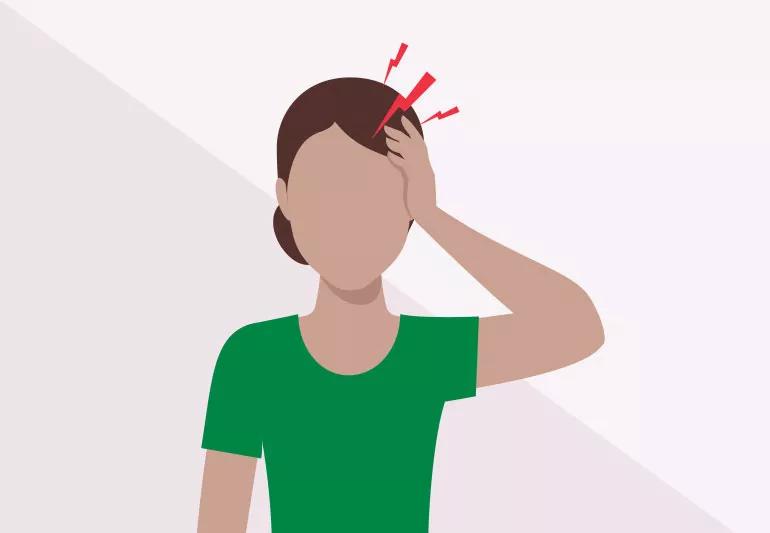The full answer from a headache specialist

Image content: This image is available to view online.
View image online (https://assets.clevelandclinic.org/transform/f8125a13-f3ae-4279-ac16-bb9d869d9152/headacheOneSide-1165294195-770x533-1_jpg)
woman with headache on one side only
A: Headaches can come in many forms. Because the way you experience headaches can vary (and so do their underlying causes), you should make sure you’re paying close attention to how the headaches are affecting you.
Advertisement
Cleveland Clinic is a non-profit academic medical center. Advertising on our site helps support our mission. We do not endorse non-Cleveland Clinic products or services. Policy
If you’re getting headaches only on one side of your head you shouldn’t worry, but you should make an appointment with your doctor. One-sided headaches can mean different things. But they often point to a group of disorders that will need a thorough exam to provide treatment.
According to headache specialist Emad Estemalik, MD, there are additional questions your doctor will focus on to identify what’s causing your one-sided headaches.
First, are the headaches continuous or do they come and go? And second, how long do the headaches last? Your answers help your doctor narrow down which category your headaches fall under.
When we talk about unilateral or one-sided headaches, there’s a distinct family of headache disorders trigeminal autonomic cephalgias (or TACs). There are four distinct types of headaches:
Advertisement
“If you have one-sided headaches, it really is important to seek an evaluation by a neurologist or a headache specialist,” Dr. Estemalik says. “A thorough exam is crucial for the proper treatment and brain imaging is often necessary to rule out any secondary causes.”
Advertisement

Sign up for our Health Essentials emails for expert guidance on nutrition, fitness, sleep, skin care and more.
Learn more about our editorial process.
Advertisement
Exercising, hydrating and other natural remedies can help a headache without the meds
Certain components found in wine like tannins and histamines may be the culprit
TMJ pain can cause headaches, but chiropractic treatments, lifestyle adjustments and medication can help ease discomfort
Dehydration, spinal fluid leaks and other conditions can cause positional headaches when you stand up
It’s all about the amount — try to stick to 100 to 150 milligrams a day to reduce and prevent a pounding, throbbing head
Many factors, like dehydration, a cold or even your medication, can result in these common symptoms
Behind your eye, on one side of your face or as a band around your head — headaches are no fun
Yes, especially if you get migraines — but medicine can help
Prioritize your health by managing stress, strengthening your social connections and getting quality sleep
Bolsters, blankets, pillows and blocks can offer extra support, stability and comfort
Allergies, postnasal drip, asthma or reflux could be to blame for a cough that won’t quit